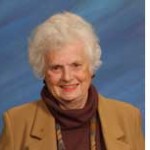By Natasha Josefowitz, Ph.D.

LA JOLLA, California — Health, Community, Purpose—these are the three pillars that will determine how well you age. Reverend Doug Edwards, a minister as well as a psychotherapist and educator, gave a presentation at the community where I live. He discussed the input of these three pillars on the population he calls “elders,” those you may know as seniors, retirees, agers, oldsters, or old folks. What must be kept in mind is that these people are still growing and learning and have a connection to the future. Elders do not define themselves by their past or by who they were, but by who they will be.
After his presentation, Doug and I ate breakfast together as we always do when he visits White Sands. We spent the morning talking about the issues facing our older population. Here are some of his lecture notes, his comments, and the gist of our conversation.
So what impact do the three pillars have on this population’s health? Our society has overcome many fatal diseases, we have improved our nutrition and reduced the risk of death due to accidents and work-related injuries. However, the next two pillars heavily impact the longevity of these elders. In 1946, the average life expectancy was 47 for women and 46 for men; today it is 81 for women and 76 for men. Over half of the people over 75, mostly women, live alone. Studies have found that the deleterious effect of loneliness on the quality of life and health is comparable to cancer, diabetes, and smoking over a lifetime.
We have all heard the moaning about the over use of social media—everyone seems to be walking around with a cell phone oblivious to their surroundings. In fact, pedestrian accidents are on the rise due to people engrossed on their cell phones while crossing streets! However, another critical issue here is the loss of face-to-face interactions. The ability to read an other person’s emotional state facilitates the conversation’s outcome and is beneficial to both.
Two populations are at the greatest risk for depression and suicide in our nation: teens and elders. While teen depression and suicide are attributed in part to the lack of in-person interaction because of technology, older people are less likely to use computers and mobile devices. They often lack companionship due to many of their cohorts being too old to visit, are ill, or have died. Yet it is critical to create opportunities to have face-to-face interactions. It leads not only to a healthier life, but to a longer one, too. Even baboons who have a friend live longer. Something as innocuous as a hand shake increases activity in our neurotransmitters, which produces oxytocin and dopamine. In other words, there is a beneficial physiological reaction. Today one third of the population states they have no one in their lives they can confide in. Given the fact that women live six to eight years longer than men on average, the importance of female friendships becomes even more vital.
The third pillar is purpose. This third driver of healthy aging tends to receive the least amount of attention as the marketplace has difficulty monetizing it like it does health. Purpose does not have to be world-shaking; all it has to be is a reason for getting up in the morning, something to look forward to, and, most importantly, someone who is relying on you. In other words, who are you helping? Where are you needed? What service are you rendering? Purpose isn’t a list of things to do; it is a list of what you care about and believe in, what gives you self-worth. Reverend Edwards suggests that in looking for your purpose, you need to review your history, identify your gifts, abilities, and talents. What gave you pleasure? What felt meaningful? What is your passion? Reflect on your experiences; what did you say “yes” to? An easy and revealing exercise is to look at your checkbook and calendar. See what you find important by where you invested time and money; this will tell you what you care about.
This chapter of life can be the most meaning-filled, for it is in our years as an elder when we are freed from jobs and many demands and responsibilities. The three drivers of aging well are choices you make and decisions you live by. Can you synthesize your wisdom from a long life’s experiences and formulate it into a legacy? Perhaps the next generation will benefit from your accumulated wisdom; it will be your gift to the future.
© Natasha Josefowitz. This article appeared initially in the La Jolla Village News. You may comment to natasha.josefowitz@sdjewishworld.com